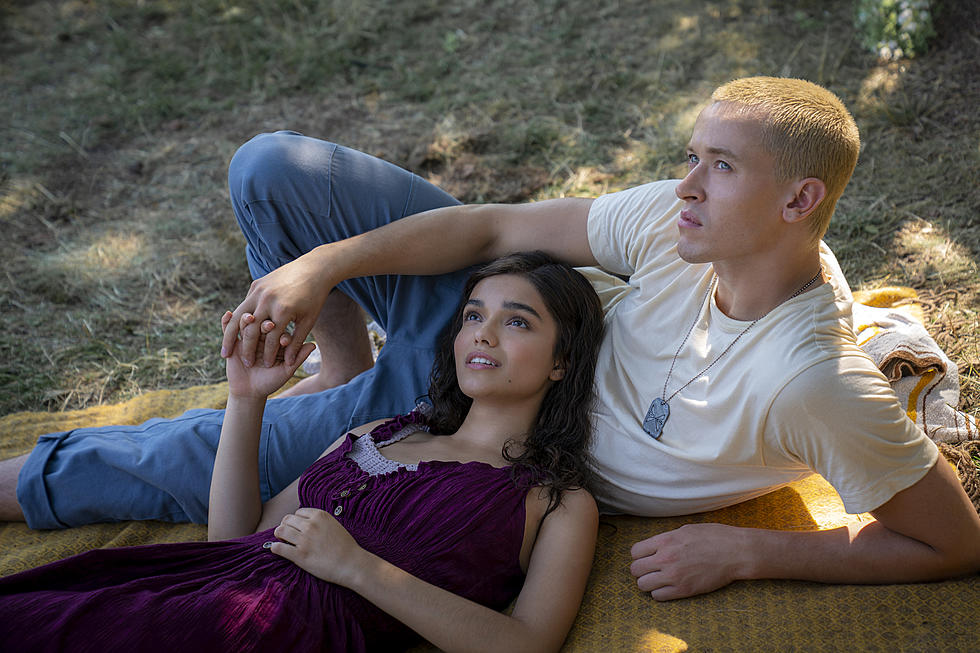
‘The Hunger Games': Is It Really a Metaphor for the Occupy Movement?
As the oft-repeated story goes, the initial inspiration for 'The Hunger Games' was a night of channel surfing, during which author Suzanne Collins began to blur together reality television and news coverage of the Iraq War. But this doesn't mean her books, nor the films adapted from them, are really about that specific conflict or necessarily tied to the modern tastes of spectators and the entertainment currently catered to them. Is 'The Hunger Games' really a metaphor for anything at all?
Inspiration is not the same as foundation. If anything, the “reaping” process of selecting contenders for the Games is actually more akin to the draft lotteries of the past. And the gladiatorial appeal for audiences is the same as it's been for thousands of years.
It's not enough anymore for a story to just have universal and timeless themes, though. We must also be able to assign it contemporary relevance by projecting our current events and culture upon it, for easier and more satisfying identification. Perhaps the reason 'John Carter' failed to catch on is that despite having employed familiar motifs like war, a coliseum battle and the ever-fashionable Christ figure, the adaptation of Edgar Rice Burroughs' nearly century-old novel failed to involve the most necessary kind of subtext, that which fits into a timely context. On the other hand, the 'Hunger Games' movie, regardless of being based on a more recent book, is almost too obvious in its openness to pertinent interpretations.
Where some are annoyed by constant comparisons between this new film franchise and 'Twilight', I'm growing sick of another talking point with the first installment that it calls to mind the Occupy movement. Normally I would love this sort of reading, but when it's positively addressed by a movie's stars, young and old, as well as by celebrities with no direct relation to the production, drawing that particular analysis is no longer fun or useful. It might seem favorable to the Occupy agenda, but ever since 'The Day After Tomorrow' I've believed it's never worthwhile to align a legitimate cause with such fantastical entertainment, because movies exaggerate issues in such a way that audiences can't and shouldn't take them seriously.
Sure 'The Hunger Games' is fortuitously relevant to the current recession and the class tension sparked by the Occupy Wall Street protests. Maybe the fact that the first book hit shelves one day before Lehman Brothers filed for bankruptcy (thanks for the reminder, Nicole Allan of The Atlantic), and so has existed in conjunction with the financial crisis, is part of why the books became so popular in the first place -- at least with the adult crossover fans, if not the targeted young adult readers. It's even possible that the filmmakers had the 99-percenters in mind when they included a scene of angry protesters being suppressed by what look like riot cops.
Or maybe it's just a common riot scene, and maybe District 12's Dorothea Lange-informed 1930s Appalachia look is to specifically evoke the Great Depression, not necessarily a correlation between that era and now, and between now and the future setting of the movie. Our time is only involved as a bridge because it's made now and viewed now. It could just as well have been made in the 1970s (though the lead probably wouldn't have been female and the violence might have been inappropriately more gratuitous). At its core, 'The Hunger Games' really is just the latest in a tradition of stories that includes '1984,' 'Metropolis,' 'Death Race,' 'The Running Man,' 'The Matrix,' 'V for Vendetta' and many other dystopian works.
What these kinds of films have in common is timeless themes relevant to timeless context. As long as we fear big government and fascist government have enormous class disparity and easily blur war with amusements of cruelty, these basically recycled science fictions will remain easily relatable to our modern world. Ever the cynic, I do believe such themes will still be significant when 'The Hunger Games' is remade in 30 years (just as we shall appreciate another adaptation of 1984, now in the works). Depressing but logical. The fact that the present version is apparently being interpreted as favoring anyone from the right, the left, up, down or whatever by respective political positions should be proof that regardless of our situation in the future, this movie will speak to it.
The concept and problems of the 99-percent/1-percent imbalance are as old as humanity, perhaps older. Yes, 'The Hunger Games' can seem to be about the Occupy movement. So can the age-old humans versus gods plot of 'The Clash of the Titans.' And recent movies like 'The Muppets,' 'In Time' and 'Tower Heist' have been cited for Occupy relevance, too. I'm sure we'll believe the dwarves in 'Mirror, Mirror' represent the 99-percent, as well. Any sort of class conflict on screen will automatically be tied to the movement, for the same reason any discussion of “hope” immediately gets us pondering what the film is saying about Obama. Our minds are just prone to making such connections and over-thinking what they mean.
Thanks to the Internet and modern media we get to see how many minds think alike, but I think great minds are those that over-think separately and originally. And there must be someone out there with a better or at least more interesting interpretation than this over-stated response.
More From ScreenCrush









